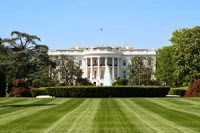 |
| image: MCS@Flickr/Flickr |
Madison Ruppert
Activist Post
Current and former U.S. intelligence officials confirmed that both the White House and State Department knew about and approved of surveillance of the phone conversations of allied foreign leaders, according to The Los Angeles Times.
This comes after it was revealed that the National Security Agency (NSA) spied on the phones of some 35 world leaders and has led to outcry in Spain, France, Mexico and Germany along with consideration of an anti-NSA resolution in the U.N.
Officials previously denied that President Barack Obama and those close to him knew about the eavesdropping of individuals at the highest levels of friendly governments.
Officials at the NSA and other intelligence agencies are reportedly upset and are under the impression that Obama is in the process of distancing himself from the activities and putting the blame on the intelligence community, the Times reports, citing intelligence officials.
In response to the latest revelations, the White House said it would look in to cutting back foreign surveillance in some cases and two senators have called for investigations into the NSA’s practices.
One such legislator, Sen. Dianne Feinstein (D-Calif.), was uncharacteristically critical of NSA surveillance and said the Intelligence Committee would “initiate a major review into all intelligence collection programs,” according to The Guardian.
However, Feinstein, who chairs the Senate Intelligence Committee, continued to stand by calling Edward Snowden a traitor, even though he is behind making the surveillance programs public.
“I’ve said what I’ve said. I stand by it,” Feinstein said to The Hill Tuesday.
Yet Feinstein complained about the programs being kept from Congress, something which would have continued to be the case were it not for Snowden’s leaks.
“The problem is the Congress has no knowledge, the intelligence committees have no knowledge,” Feinstein said. “And it seems to me that collecting content on allied leaders who are good friends is not something that we should do, without presidential authority.”
The last part of her statement seems to be incredibly important given that it is now apparent that it was indeed conducted with presidential authority.
The anonymous intelligence officials who spoke to the Times said that the only way the White House be ignorant of the spying on foreign leaders was if they didn’t read their briefing books.
Interestingly, Feinstein claimed that the U.S. had stopped collecting intelligence on its allies and that such collection “will not continue.”
This claim was outright rejected by a senior Obama administration official, according to The Hill.
“While we have made some individual changes, which I cannot detail, we have not made across the board changes in policy like, for example, terminating intelligence collection that might be aimed at all allies,” the official said.
After the administration refuted Feinstein’s claim, a spokesman for the senator said she actually meant that the U.S. was ceasing “collection on foreign allied leaders.” It remains to be seen if that is actually true.
Feinstein also said it was her understanding that Obama “was not aware” of the U.S.’s practice of monitoring the cellphone of German Chancellor Angela Merkel. This also appears to be false.
 The apparent shifting of blame seems to have enraged many in the intelligence community.
The apparent shifting of blame seems to have enraged many in the intelligence community.
“People are furious,” a senior intelligence official said to the Times. “This is officially the White House cutting off the intelligence community.”
Sen. John McCain (R-Ariz.), said that Congress should think about launching a special select committee to examine what Obama knew about eavesdropping on foreign leaders.
White House spokesman Jay Carney confirmed that the Obama administration recognizes “there needs to be additional constraints on how we gather and use intelligence.”
How that will play out remains to be seen.
Legislation was proposed on Tuesday that would completely revamp the Patriot Act and “effectively end the NSA’s bulk phone metadata collection program,” according to Wired.
The American Civil Liberties Union commended the proposal, calling it “real spying reform.”
While that legislation is considered by lawmakers, the White House will reportedly conduct a review of their own, Carney said.
Caitlin Hayden, the spokeswoman for the National Security Council, said that the administration’s review would examine if the government has “the appropriate posture when it comes to heads of state, how we coordinate with our closest allies and partners, and what further guiding principles or constraints might be appropriate for our efforts.”
The administration’s review should be completed by the end of the year, Hayden said.
I’d love to hear your opinion, take a look at your story tips and even your original writing if you would like to get it published. I am also available for interviews on radio, television or any other format. Please email me at Admin@EndtheLie.com
Please support our work and help us start to pay contributors by doing your shopping through our Amazon link or check out some must-have products at our store.
This article first appeared at End the Lie.


Be the first to comment on "Intelligence officials confirm White House, State Department approved surveillance of allied leaders"